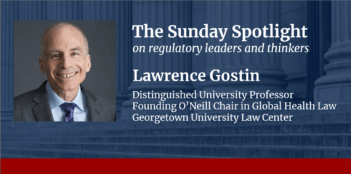
Private telecom and transport networks have delivered socially valuable outcomes during the COVID-19 pandemic.
The COVID-19 pandemic offers important lessons in telecommunications and transportation, infrastructures whose regulation stems originally from the Interstate Commerce Act of 1887 and the Interstate Commerce Commission. For more than five months amid the pandemic, network providers have provided consistent service without increases in price or decreases in quality of service. Such service contradicts the progressive prediction that network service and performance will suffer without extensive government controls. Instead the COVID experience has shown that market incentives have delivered socially valuable outcomes.
One progressive regulatory point of view holds that network owners are inherently malicious monopolists who will harm their customers and suppliers. Some policy advocates who hold this view argue that such providers pursue private interests to the detriment of users, and only government intervention can achieve socially valuable interests. They prescribe strong and continued ex ante rules to constrain network owners’ behavior, such as net neutrality rules to ensure internet openness or rate reform proceedings to limit the profit of rail networks.
Prior to the COVID-19 lockdown, such progressive regulatory regimes in telecommunications and freight rail networks had been reversed or paused. In 2017, the Federal Communications Commission (FCC) reversed the 2015 Open Internet Order, restoring broadband oversight to the Federal Trade Commission while keeping transparency rules. The pandemic has seemingly slowed some of the Surface Transportation Board’s most ambitious regulatory efforts, although existing laws remained on the books and the agency still proposes a problematic way to reform rate disputes.
Following the conventional view, the pandemic would be the opportune time for network owners to show their ostensibly true colors by blocking or degrading traffic and arbitrarily raising prices. Indeed, the needed rules are not in place—regulators are not in office, and end users remain quarantined at home, relying on broadband networks for work, school, and health care, and on freight rail networks to deliver essential products and industrial inputs.
Interestingly, network owners have behaved opposite to what the progressive regulatory wisdom would predict. Despite record traffic on broadband networks, broadband providers lowered prices in solidarity with their customers, and they expanded capacity by adding cell sites, towers, and wi-fi hotspots. Content providers such as YouTube, Netflix, and Zoom experienced some of the highest uptake of customer demand, contrary to the blocking and degradation that broadband providers were predicted to do in the absence of net neutrality—regulation to “protect internet openness” with bright line rules against “blocking, throttling, and paid prioritization.”
The coronavirus pandemic has been a boon for video entertainment, propelled by decades of investment by telecom network providers. In fact, over 800 U.S. communications service providers pledged not to cut service or add fees for 90 days through the FCC’s Keep Americans Connected Pledge. Wall Street downgraded the earnings expectations as a result of the action, but the networks continued the offers in solidarity with their customers during the crisis.
Freight rail networks also could have exploited shippers, refusing to make deliveries unless the shippers paid up. But they did not. Surface transportation networks continued making deliveries despite immense challenges posed by the virus and an economic downturn. The goods shipped included essential industrial inputs and critical products such as chemicals for medicines and food packaging, chlorine-based disinfectants for treating water, crop fertilizer, animal feed, municipal waste, energy supplies, and essential household products.
What might this network behavior under crisis tell about regulation during normal times?
For one, the ability of the networks to invest prior to the crisis was critical to ensure that networks were ready when the pandemic hit. Since 1996, the last major update of the relevant laws, the respective network regimes have been relatively deregulatory. Both sets of networks have enjoyed record-setting levels of private investment, $1.7 trillion for telecommunications and about $710 billion for freight rail. Indeed, network owners pursuing private investment incentives have yielded socially valuable results, notably the continued investment, maintenance, and upgrading of networks so that service can continue even during a crisis.
This observation is not a repudiation of all regulation. It merely suggests that, with networks, ex post interventions to address actual harm are superior to ex ante rules based on theoretical concerns. Had regulators succeeded in imposing stricter ex ante rules, investment would have likely suffered.
Going forward, telecom and freight network owners are positioned to help the U.S. economy green its way out of the crisis without the need for additional regulation. Energy efficiency makes environmental and business sense. For example, telework has reduced the need for car transportation, which along with light-duty trucks and other forms of transportation are among the largest sources of greenhouse gas emissions. Under current network conditions, moving the same amount of freight by rail is three times more energy efficient than by truck.
This experience should inform the evaluation of new policy proposals. For example, the U.S. House of Representatives reportedly proposed a $600 billion dip into deficit spending to help subsidize infrastructure for wireline networks and highways. These proposals reward traditional political stakeholders whose business models are disrupted by better and greener technologies. Rather than use taxpayers’ money during a financial crisis, digitally connected freight rail prefer to use their shareholders’ money and most have opted to forgo government bailouts.
That networks are secure, available, and operational is critical to the economy and itself fulfills important social goals. Private network providers—by investing for the future—ended up prepared for the unexpected. No regulator told network providers in advance to be ready for the pandemic, but following their investment incentives, network providers have continued to deliver service through the crisis and to maintain quality even with increased constraints.




